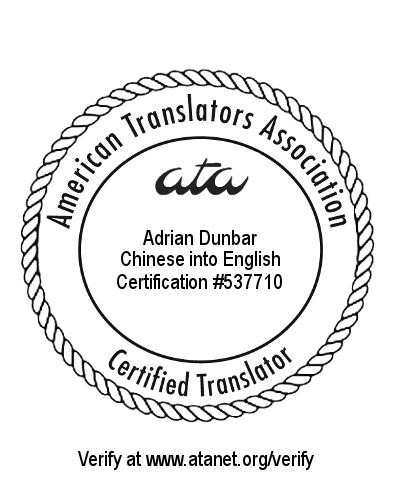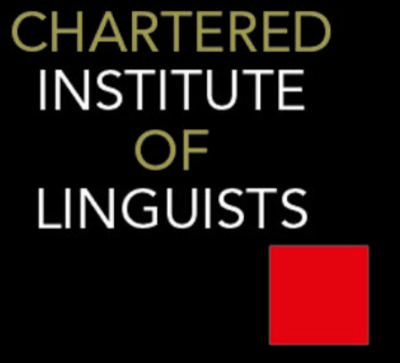Most translation companies will just resell your business translation project to an anonymous third party without even telling you who does the work. An emerging business model is changing that: the professional translation firm, organized no different from a truly professional law, accounting, or consulting firm.These are firms where you can visit their website and see the profiles of the actual people doing the translation work for you.
While the legal sector already has hundreds of large, well-established law firms, this is unfortunately not the case in our field. Chinese translation for legal and business purposes is fairly new, and the number of firms out there is relatively limited, with those existing typically being quite small. Much like a law or accounting firm, a professional services firm working in translation generally does not compete directly with a temp agency; firms offer expertise, while temp agencies offer armies of temps.
A professional translation services firm is organized much like an accounting, law, or consulting firm is organized, with partners taking charge of the project, and assistance being provided by the associates and assistants working under the supervision of the partners. Hospitals, while usually adopting a corporate structure, also list doctors’ profiles, who work in teams directly with patients as independent contractors. This is a radically different model from companies that outsource translations, since translation company translators are prohibited from having direct contact with each other, out of fear that they will solicit collaborators and poach clients. Therefore, in the translation services firms’ space translators work in a more logical and effective environment, whereas in a temp agency environment, they would be required to work in a state of almost entire dysfunction.
Many lawyers have difficulty distinguishing the websites of expert translators from the websites of temp agencies. Professional translation service firms are organized in the same way as law firm, and consulting firm websites are. On a law firm site, you will see the profiles of the attorneys responsible for specific matters. Likewise, on my website, you can do this by clicking my profile page link, where you can see credentials including my law license, translation certification, and appointment as a professor at a United Nations affiliated university that is top ranked in this field. Compare that to the websites of temp agencies such as Special Counsel or Hire Counsel, which don’t have a single permanent employee. If a company does not show the profile of your expert, then you simply cannot rely on the work of such a person as an expert, as in most cases those claims are inflated and the project manager may consider having worked on a handful of projects for an unsophisticated client without complaints as proof of expertise.
Another defining characteristic of the professional services firm is that while rates are actually similar to those of temp agencies, most or all of the professional services fees go to the professional, as opposed to paying for overhead and shareholder profits. With markups in Chinese legal translation approaching 3,000%, you can hire a well-respected expert for the price of a fraudster or an amateur. A partner-level translator, on the other hand, usually has an advanced degree, such as an M.S., J.D., Ph.D., or M.D., national-level recognition, and native-level skills in the source and target languages. They are not only experts in your local industry, but of the industry in the foreign country and the precise way in which an English native speaker would express the Chinese idea they are translating.
Professional translation services firms are also extremely concerned about their personal reputations and therefore invest heavily in quality assurance to ensure that they maintain their reputation. Where unethical firms would have unqualified people conducting quality assurance, or even more likely doing no quality assurance at all, a firm is more likely to have two or more experts assisting with quality assurance. In this way, they work much like very large law and accounting firms that employ many highly intelligent people do, repeatedly and closely reviewing documents to ensure perfection. That is to say, what would otherwise be spent on overhead expenses is spent on quality assurance essentials to prevent serious mistakes from affecting your business. Unlike a corporation where their duty is to the shareholders, a professional services firm partners’ primary duty is to the client, meaning that a good firm will bend over backward to get everything perfect.
In comparison to other entities, most professional service firms in the translation field are currently quite small, which reflects how small the professional translation field really is. The United States only has about 5,000 certified translators while it has over 1,400,000 licensed attorneys. Many of America’s law firms, in fact, have more licensed attorneys under a single brand than there are certified translators in the entire industry.
Getting professional service from a company that uses an anonymous workforce and opaque markup schemes is generally difficult or impossible. Consider it from the perspective of your own field. For example, one can easily expect to find competent lawyers at firms like Skadden, but if you were to turn to a temp agency such as Hire Counsel or Special Counsel, you would not be receiving a sophisticated legal counsel.
What to Look for In a Translation Professional
When it comes to procuring Chinese translation, you are ultimately the one responsible for ensuring that the Mandarin translators you hire for your service are qualified, even if the translation company you hire makes promises that all of its translations will be perfect and represent the highest industry standards. The reality is that because translation quality is so hard to verify by most companies, even extremely large ones independently, most translation outsourcers adopt an approach of making extremely lofty promises to translation buyers. While this approach may be effective for European languages, for a difficult language with few qualified professionals such as Chinese, the approach taken by typical outsourcers generally ends up in Mandarin translation disaster for their clients.
Look for Certification
In theory, an important translation project should be performed or headed by an expert translator certified to translate from Chinese to English. This is not much different from a patient going to a hospital to seek services from a physician board-certified in a specialty such as neurology or oncology. A problem for lawyers is that they often outsource translation hiring to companies that put shareholders’ interests far above professionalism and the client, and with these companies’ high overhead it is usually not profitable to hire an expert Chinese translator for the rates clients are willing to pay after the markup. Worldwide, there are no more than 100 translators who have been certified as Chinese to English experts by the ATA and similar organizations, a number that is similar to the 100 interpreters the AIIC has certified to be qualified. The ATA and AIIC are good at this because their leadership is composed of highly recognized experts in each language field. A number of translation companies have taken it upon themselves to create sham certifications they hold out to clients as proof of qualification; don’t trust these. If a translator is really as good as a company says, they will be able to get third-party recognition.
Note that the foregoing applies to my specialization, Mandarin to English translation, which is only certified by three organizations worldwide (ATA, CIOL, and ITI). The English-to-Chinese field is over ten times the size and has a larger set of certifying organizations, including CATTI and Chinese University accreditation. If you have any questions about the English-to-Chinese field, my colleagues would be happy to help answer any questions outside the scope of this guide. Most of my students can achieve Tier 2 in CATTI before they graduate, which proves that they are qualified to be an associate, but lack the capability to be responsible for client matters.
How to Find a Genuine Professional
I want to make a radical proposition to you when it comes to what the best translators are real people. That means they should be people you can talk to on the phone and see their faces in a video conference. The number of lawyers who have never seen the faces, heard the voices, or read the names of the translators upon which they are relying is shocking. As far as these lawyers go, those translators may as well be ghosts—and sometimes indeed are ghosts, or rather, ghosts in a machine known as Google Translate. Much of the work of these non-existent, unaccountable translators is simply the output of a machine that high-priced lawyers then rely on.

The person you should hire for your Chinese translation should not be a lone wolf translator, but someone who deploys a team to work with them. Consider for example, how an expert law partner or a big four accounting firm partner will deploy a team of people, including associates, staff attorneys, and even clerical staff, to get the project done and get it done right. The reality of modern professional services work is that the lone wolf is often slow and prone to making mistakes. When people work together in teams led by a partner-level expert with recognition in their field, however, clients get great value and great service. That at least, is always my goal: to accomplish tasks quickly, efficiently, and with zero error rates. Therefore, when hiring someone for Chinese translation, look for a true expert that understands teamwork.
 The person you bring on as your expert should be someone that has both certification and industry recognition. For any Chinese-to-English translation, it is absolutely essential that the person is certified by a leading translation authority in the United States or the United Kingdom, those being the American Translators Association or Chartered Institute of Linguists, which have thorough certification requirements and ethical demands. Certification only guarantees that the professional will be able to function on the level we might expect from a Certified Public Accountant, but there is a big difference between a strip mall tax service like H&R Block and a partner at Deloitte or EY.
The person you bring on as your expert should be someone that has both certification and industry recognition. For any Chinese-to-English translation, it is absolutely essential that the person is certified by a leading translation authority in the United States or the United Kingdom, those being the American Translators Association or Chartered Institute of Linguists, which have thorough certification requirements and ethical demands. Certification only guarantees that the professional will be able to function on the level we might expect from a Certified Public Accountant, but there is a big difference between a strip mall tax service like H&R Block and a partner at Deloitte or EY.
Personally, I am committed to the principle of professionalism and will help clients find a referral to experts appropriate to their needs outside my own narrow legal specialization. For example, while I have translated numerous pharmaceutical company anti-kickback policies and legal compliance memorandums, Chinese medical research into the efficacy of one of their medicines would be best left to a certified translator with an M.D. or pharmacology Ph.D.
When looking at credentials to determine that you do have an expert on board, the first thing you should look for is certification. Imagine you are dealing with a matter that requires accounting expertise. Would you hire an accountant to be your expert if they are uncertified? You wouldn’t; common sense would dictate that retaining a Certified Translator is as important as using a Certified Public Accountant, and not an amateur. A personal injury attorney with a brain injury case may present the testimony of a board-certified neurologist, and a neurologist can supervise amateurs such as residents, but it would be completely unacceptable to rely on a resident as an expert. They are simply not certified. Any kind of serious professional matter requires expert supervision by someone whose competence is recognized. That’s why the General Counsel who entrusted the translation of a serious white-collar crime investigation to Uncertified Translators was later served a criminal complaint about taking steps to “affirmatively mislead” the victim about their own employees’ conduct. Even if they did not intend to mislead anyone, using amateur translators still constituted an ethics violation, and their blame was inescapable.
Conclusion
Only a well qualified expert, certified and having recognition in the field, with years of experience and specialization can reliably produce legal translations from Chinese to English. Be especially careful to avoid sending requests to companies that keep the translator’s identity secret, or entrusting translations to professionals from other fields moonlighting as translators. Their skill level is certainly amateurish, and will not meet needs for professional translation.

